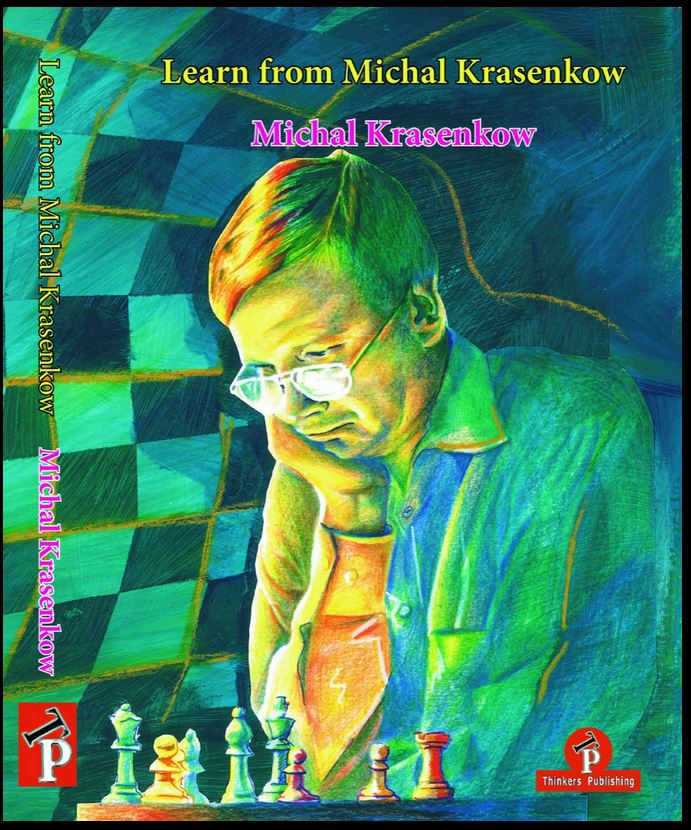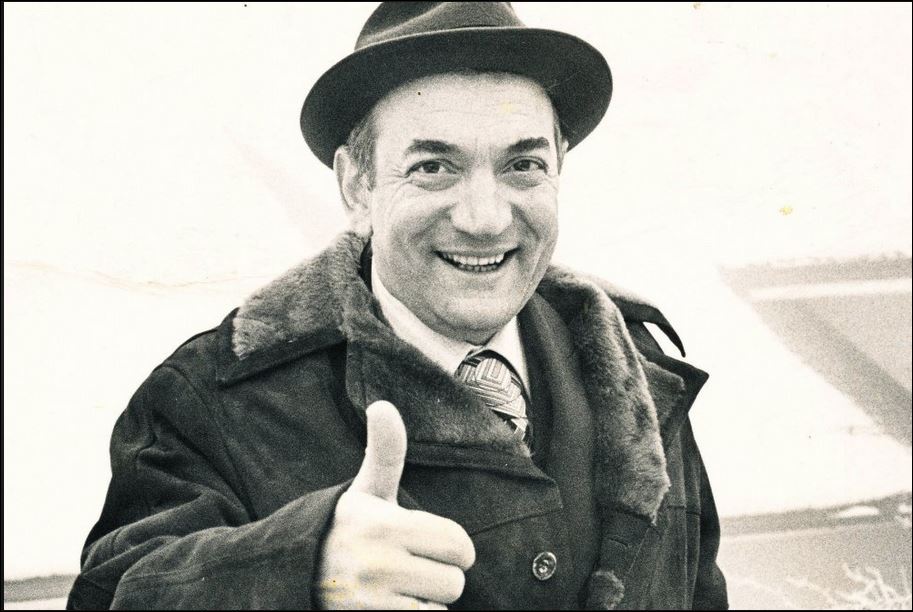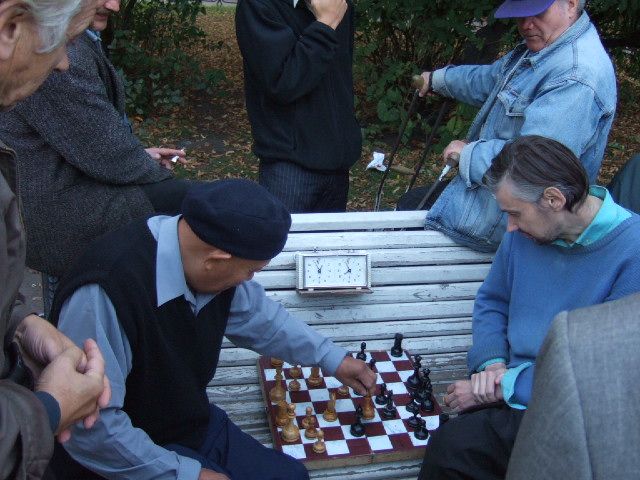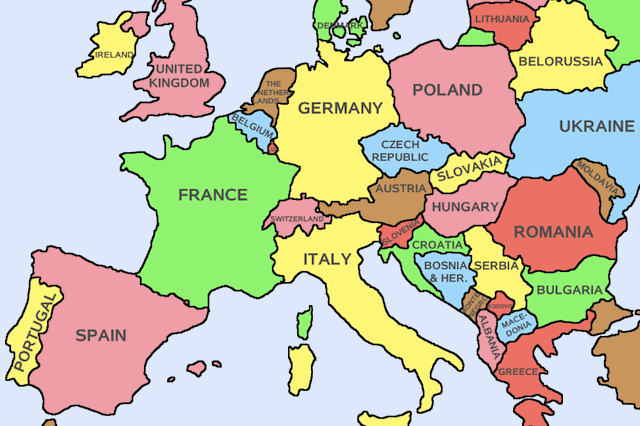
Thanks to Thinkers Publishing (https://thinkerspublishing.com/) I had the chance to interview some of their authors, before the COVID plague hit the world. This interview presents GM Krasenkow who was born in Moscow in 1963 and became GM in 1989. Today such “slowness” in becoming GM would be considered a bad sign, or lack of “talent” whatever that means. But the chess world of the 70ies and 80ies is not our modern chess world, and making the norms, or participating in the right tournaments was definitely more difficult than today, when a 12 years old can become a GM while playing in some GM norm tournaments organized every Saturday.
Probably today’s strength of young GM’s players is higher due to the deep engine opening preparation, and of course the many more sources one can have access to.
Surely in the 70ies and 80ies there wasn’t a free source like TWIC which published thousand of games played every week. One had to rely on The Informant, and also to find the copies was hard in some countries. From the interview one can feel that the Soviet School of chess (Morozevich says it never existed) was clearly superior, because GM Krasenkow made three norms in few months once free to roam the world! Before the fall of the Berlin wall, for chess players from communist countries was difficult to travel sometimes for passport/visas issues, and sometimes for monetary financial problems. Without mentioning the fear of the communist regime that those players would escape to western countries and not return back, like it happened for famous cases like Kortchnoi, Sosonko etc. Without further ado, let’s dive in the interview:

Davide Nastasio: Could you tell for our readers how the chess journey began for you?
Michal Krasenkow: I was born and lived in Moscow, Russia (then the Soviet Union). My grandfather taught me chess; first I played with amateurs in the park, then, at the age of eight, I went to the so-called Pioneer Palace, where i started playing in tournaments and attending chess classes.

DN: Who coached you when you were young? (if there were interesting exercises, number of hours, etc)
MK: I can name all my coaches in the Pioneer Palace from the beginning till the Candidate Master level: Evgeny Penchko, Alexander Chistiakov, Victor Lublinsky, Eduard Shekhtman.
DN: Which book/s influenced you most in your formative years?
MK: I think collections of games by great players, especially Rubinstein. I also enjoyed books on chess history and biographies of outstanding players.

DN: How did you become a GrandMaster?
MK: When the borders of the Soviet Union started opening up, and a lot of players got the opportunity to play in international tournaments, it was not a problem for a strong Soviet national master to obtain a GM title. I got all of my three GM norms within a three-month period (April-July 1989) in closed GM tournaments in Slovenia and Hungary.

DN: Keres and many other GMs do describe their chess life like a via crucis, there are some pleasant experiences, but also a lot of pain, especially when one loses important tournaments or games, what about you?
MK: I enjoy playing chess, it is a great fun. Sometimes it brings disappointment but positive emotions definitely prevail.
DN: Is professional chess a good career option for the young today?
MK: It depends on what you expect from your life. If you agree to go to the office every day, make a career, earn more and more money etc. then chess is a poor choice. If you want to visit the whole world, meet a lot of various people and enjoy freedom (and, of course, if you have talent for chess), then it is an interesting option.

DN: Lately there has been a great talk of Chess960 as the future of chess, what is your opinion about it? Did you play it?
MK: I took part in some tournaments in Mainz quite a while ago. It is a completely different game: the rules are not quite the same (castling), and the arising positions are very unusual. I don’t see its bright future for a simple reason: classic chess is a game with traditions, played by millions of people all over the world. Problems of professional players (extensive theory, necessity of deep preparation) are alien to them, they will never understand why they should switch to another, new game. And watching and kibitzing one game while regularly playing another one is a strange situation for a chess fan.

DN: Can you play Blindfold games, and what is your opinion of blindfold play?
MK: I can but rarely do. It is a good training exercise for young players.
DN: How far do you trust the computer evaluation of a position?
MK: Not very much. Very often it has nothing to do with real results expected if humans play the given position to the end (and that is the essence of evaluation). Unfortunately, many positions are very hard for humans to evaluate, and we have nothing better than to accept computer evaluations, at least conditionally.
DN: If one side is attacking and the other side defending, who needs to calculate more? Why?
MK: Generally it is more difficult to defend: you have a double task as you must both discover the opponent’s threats and find ways to parry them. On the other hand, when defending, you often have a limited choice of continuations. I think, the latter point prevails so the defender has to calculate less.
DN: Is it better to rely on one’s own intuition and judgment rather than calculate endlessly and get into time trouble?
MK: That depends on the position. There are critical positions, in which mistakes can be very costly; in such situations you should often calculate deeply to choose the right continuation. But in most of situations intuition and understanding are more important.
DN: What is your advice for a promising young player (2200-2300Elo category)?
MK: Love chess and play it! Your own practice is your best teacher.

DN: Do you have any advice for senior players in the 2000 range?
MK: The same . Chess is a wonderful game after all.
DN: Now I’d like to ask you some questions about your book. How did you select the material for your own book?
MK: This book is a selection of the most memorable games I played during my chess career, divided to thematic sections. I selected these games for years but, of course, when I started writing the book, I found some of them not so nice and not remarkable enough to be included in the book. Well, human tastes change in process of time. I am a big lover of endgames so I made a special chapter containing the most interesting endgames I have played so far. I had already analysed most of them in various articles but when I started checking my old analyses, I discovered a lot of new subtleties and had to correct a lot of evaluations.
DN: the book is a collection of 66 deeply annotated games, for over 400+ pages!! I’d like to share some of the games one can find in the book, not annotated, to give an example of the GM Krasenkow brilliance. However the book is more exciting because one can discover what the author thought, how deep he went, and more details upon all the the amount of knowledge one needs to deal effectively with some parts of the game. Another important feature I’ve noticed lately is that in books professional players like GM Krasenkow share games which are not available in commercial databases like Megabase 2021, and this is quite important, because the book gives access to games never seen before!
An important factor I found out while searching the games for this article, was the number of long time control games GM Krasenkow played each year, and clearly when he was achieving the GM title the number was a minimum between 60-80 a year. I enjoyed the game against Sveshnikov, it seems someone invented AlphaZero Pg2-g4 quite before AlphaZero! For Dvoirys I found two games, and included also the one which is not in the book, while the one in the book has been annotated on Megabase 2021, and I thought to share it in that format, for enjoyment of the reader of this interview.
